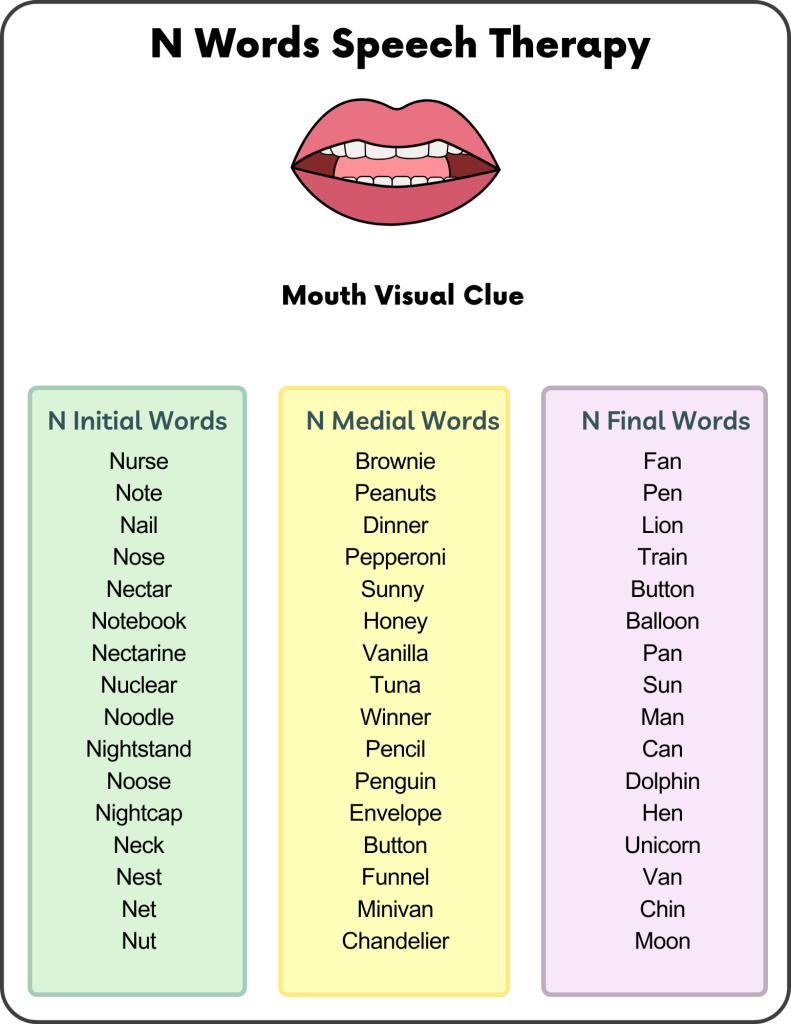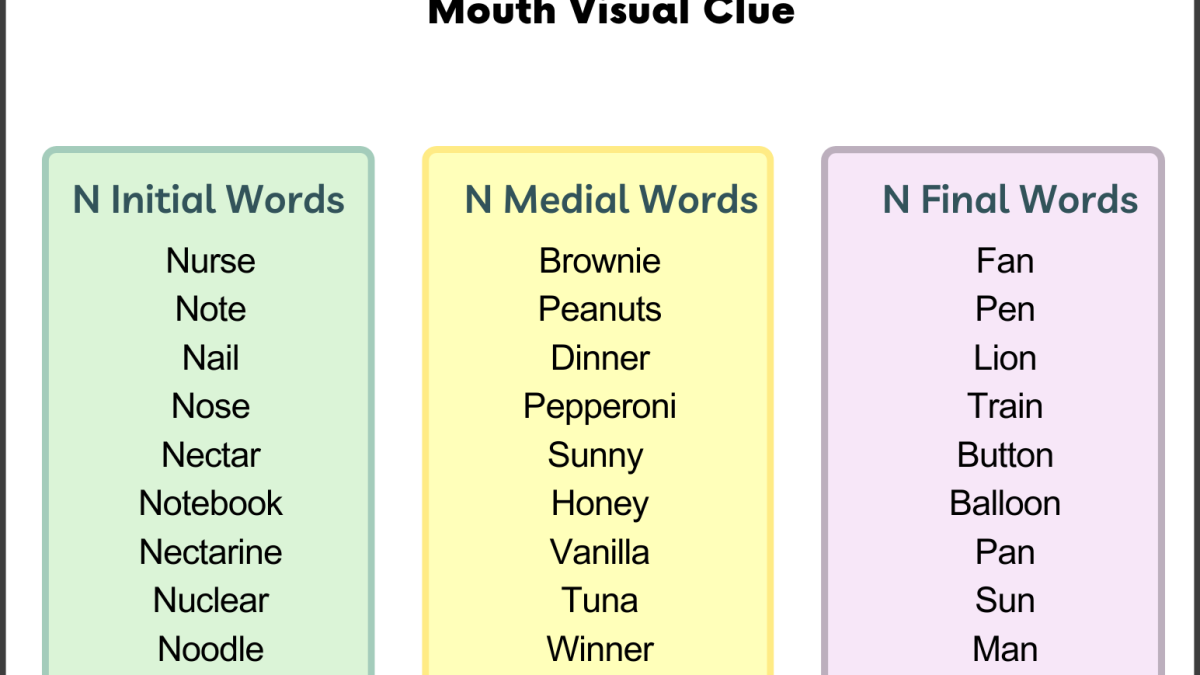
K Words in Speech Therapy
November 19, 2025
G Words in Speech Therapy
November 19, 2025Introduction to N Words in Speech Therapy
Hello, parents! If your child is having difficulty on the N sound, this guide is here to assist you. The N sound—a voiced alveolar nasal made by pressing the tongue tip against the upper ridge behind the teeth and letting air flow through the nose—is typically mastered by age 3-4, but some kids may substitute it with “D” (e.g., “dose” for “nose”) or struggle with its nasal quality. This article provides lists of N initial, medial, and final words, plus practical tips to make practice enjoyable and effective at home, empowering you to support your child’s speech development.

N Words Speech Therapy Printable PDF Worksheet
Understanding N Word Positions
- Initial N Words: These begin with N, like “nose” or “nest,” where the sound starts with a clear, nasal hum.
- Medial N Words: These have N in the middle, such as “sunny” or “brownie,” blending N with other sounds.
- Final N Words: These end with N, like “fan” or “pen,” requiring a strong nasal finish.
Lists of N Words for Practice
Here are simple, child-friendly N word lists for home practice, ideal for daily use or play.
V Initial Words
- Nurse
- Note
- Nail
- Nose
- Nectar
- Notebook
- Nectarine
- Nuclear
- Noodle
- Nightstand
- Noose
- Nightcap
- Neck
- Nest
- Net
- Nut
N Medial Words
- Brownie
- Peanuts
- Dinner
- Pepperoni
- Sunny
- Honey
- Vanilla
- Tuna
- Winner
- Pencil
- Penguin
- Envelope
- Button
- Funnel
- Minivan
- Chandelier
N Final Words
- Fan
- Pen
- Lion
- Train
- Button
- Balloon
- Pan
- Sun
- Man
- Can
- Dolphin
- Hen
- Unicorn
- Van
- Chin
- Moon
Tips for Parents to Support Practice
Here’s how to help your child with N words at home:
- Hum the Nasal: Hum “nnn” for “nose” like a sniff to highlight the nasal sound—try it while pointing to your nose!
- Blend into Chat: Use words naturally, like “Run to the sun,” during outdoor play.
- Repeat with Fun: Say “nut, nut, nut” while pretending to crack one open to reinforce the sound.
- Model the Sound: Stretch the “n” (e.g., “N-n-nest”), showing nasal airflow, and celebrate their efforts.
- Pair with Objects: Link “net” to a toy net or “moon” to a night sky
If your child swaps N for D (e.g., “kote” for “note”) or skips final N (e.g., “moo” for “moon”), a speech therapist can offer tailored advice
The N sound is a natural part of clear speech, and you’re well-equipped to help your child master it! With these N initial, medial, and final word lists and easy home tips, practice can be both fun and fruitful. Keep it consistent and playful, and don’t hesitate to seek a professional if needed—your support makes a notable difference!


